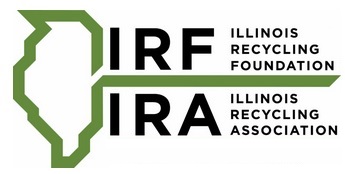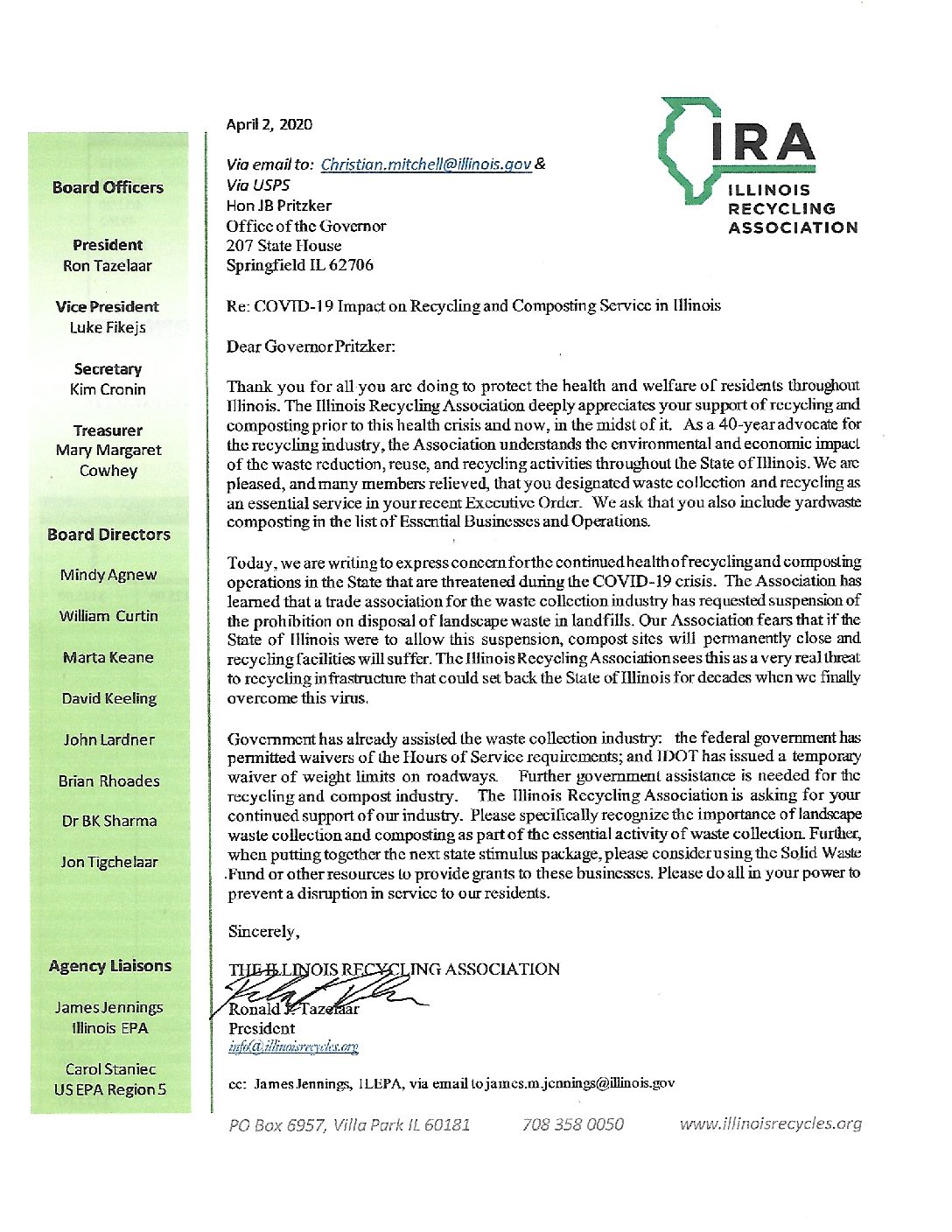On October 1, 2024 the Illinois Recycling Foundation, in collaboration with the University of Illinois Chicago, and Loyola University Chicago hosted a comprehensive “Lunch and Learn” webinar focused on the institution’s recycling and sustainability initiatives. The session aimed to educate the campus community about ongoing efforts to minimize waste and promote environmentally responsible practices.
The webinar provided a platform for the university’s sustainability team to share significant progress, current challenges, and future goals related to recycling and waste management.
Key Highlights from the Webinar:
1. Dual-Stream Recycling System
A central feature of the university’s recycling initiative is its dual-stream recycling system implemented in public spaces. This system effectively separates recyclable materials, such as paper, glass, and plastics, to reduce contamination. By maintaining cleaner recycling streams, the university enhances the quality of its recycled materials, facilitating their processing and reuse.
Additionally, a three-bin system has been established for back-of-house operations, further improving waste management efficiency. The university’s ability to sell recycled paper and cardboard generates a modest revenue stream, which, while not fully supporting the program, helps to mitigate operational costs and demonstrates the program’s economic viability.
2. Comprehensive Composting Efforts
In alignment with its recycling initiatives, the university has developed a robust composting program operating across four locations on campus. This program addresses both landscape waste and food waste, effectively diverting organic materials from landfills. Composting is essential for minimizing greenhouse gas emissions associated with organic waste and promoting a more sustainable ecosystem.
The sustainability team underscored the significance of the composting initiative as a vital component of the university’s broader waste management strategy, contributing to healthier soils and a reduced environmental footprint.
3. Expanding Recycling Beyond Traditional Materials
The university’s recycling efforts extend beyond conventional materials. Key initiatives include:
- Shredded Paper Recycling: Secure shredding services for sensitive documents ensure that confidential information is handled responsibly while promoting recycling.
- Hazardous Waste Collection: Special recycling bins are available for batteries, pens, markers, and plastic bags, addressing the disposal of hazardous and everyday items.
- Plastic Film Recycling: The university encourages the recycling of plastic bags and films, recognizing the detrimental environmental impact of plastic waste.
- Laboratory Waste Management: The collection of specialized items, such as pipette tip boxes commonly used in research laboratories, further enhances the university’s recycling capabilities.
4. Achieving a 26% Recycling Rate
Currently, the university’s recycling rate stands at approximately 26%. While this figure reflects a commendable commitment to sustainability, the sustainability team acknowledged the need for ongoing improvement. Strategies discussed during the webinar included encouraging greater campus-wide participation in recycling programs, reducing waste generation, and fostering sustainable behaviors.
Engagement and Community Involvement
The success of the university’s recycling and sustainability efforts hinges on the active involvement of students, faculty, and staff. During the webinar, the importance of collective responsibility was emphasized. Participants were encouraged to not only utilize recycling and composting facilities but also to advocate for sustainable practices among their peers.
A key takeaway from the session was that even small, consistent actions can lead to significant environmental benefits. Whether through proper disposal of used batteries or opting for reusable containers, individual contributions play a vital role in advancing the university’s sustainability goals.
Looking Ahead: Future Initiatives
As the webinar concluded, participants expressed a renewed sense of responsibility and optimism for the future. The university has set ambitious goals to further enhance its sustainability initiatives, including increasing the number of composting locations, reducing reliance on single-use plastics, and exploring innovative ways to generate revenue from recycled materials.
The sustainability team also announced plans for additional “Lunch and Learn” sessions, each focusing on different facets of sustainability. These future events aim to deepen engagement with the campus community, providing further opportunities for collaboration and shared learning.
Missed the Webinar?
For those unable to attend the live session, a recording will be made available for review. You can watch it here. IRF will also provide updates on upcoming webinars and sustainability events, offering more avenues for the campus community to engage in creating a greener and more environmentally friendly campus.
Conclusion The “Lunch and Learn” webinar, organized by the Illinois Recycling Foundation, exemplifies the university’s commitment to sustainability and environmental stewardship. By continually evolving its recycling and waste management programs, the institution serves as a model for universities nationwide. With the active involvement of the entire campus community, the university is well-positioned to achieve its long-term sustainability objectives.




















